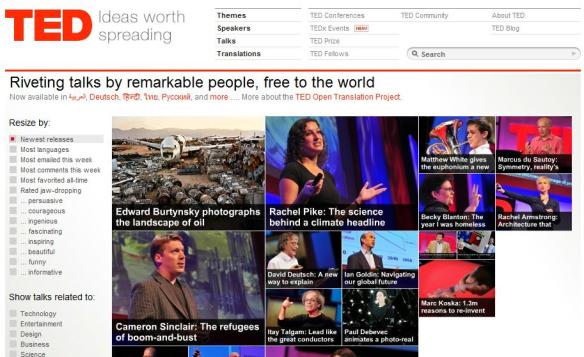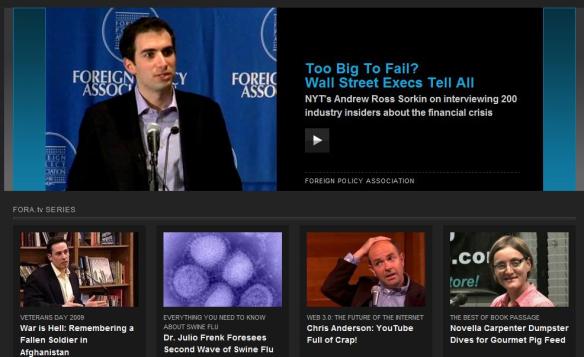OpenCourseWare (OCW) is the provision of course materials provided openly on the Web and pioneered by MIT.
I recall the time of the MIT announcement as I worked in a Computing Services department of a UK university the Deputy Director at the time saying that MIT was putting all its courses online. I tried to make the distinction that it wasn’t their courses but their courseware that was being made public and that there was much more to a course than its content. Fundamentally, education is more that just content, it is the added value above and beyond the content; it is the interaction of students with faculty, with other students, with experts, with novices, anything that creates an intellectually challenging environment to challenge pre-existing beliefs. In the Openness in Education OpenCourseWare topic video, the announcement press conference (I’ve linked to the MIT hosted version) filmed at MIT (4 April 2001), MIT President Charles Vest makes this point quite distinctly in his opening speech, and again in response to questioning. Importantly for me and the work I’m currently involved in, Prof. Vest strongly points to the “deeply ingrained sense of service” and “incredible idealism” within the MIT faculty. This for me encapsulated the ethos of a deep sense of commitment to what education means to illustrious and highly motivated educations at one of the world’s great educational institutions. Prof. Steve Lerman (Chairman of the Faculty) says that selling courses for profit is not why most of the faculty do what they do, and it’s not the mission of the University. A fundamental value is how you create and disseminate human knowledge. Also, the fact that such an idea, and indeed a venture, could come seemingly from the grassroots faculty is extremely encouraging for me personally.
Prof. Hal Abelson (EECS) points out that going through the process of creating OCW actually allows faculty to reflect upon their own teaching practice; what they are doing with their own students. Once the content has been ‘separated’ from the education process you are able to think more deeply about the overall educational experience.
Prof. Vest goes on to say that openness is a successful way for bright people to innovate, as was the case with software – so for education. This would seem to draw in other topics from the Openness in Education course, particularly the Open Source topic.
From the video, intellectual property rights wasn’t as large an issue for the faculty at MIT as had been anticipated. Instead there was more of a concern about quality of product and service to end user.
The MIT initiative celebrated its ten year anniversary in April last year. In those intervening years, MIT through ‘OCW has shared materials from more than 2000 courses with an estimated 100 million individuals worldwide.’ (http://ocw.mit.edu/about/next-decade/ accessed 27 January 2012). Well over a million visits are logged each month on MIT OCW, accessed from 200 countries.
I guess paralleling the MIT OCW, the Open High School of Utah is committed to making available its entire curriculum as Open Courseware, thus providing a freely available high school level education.
The OpenCourseWare Consortium
The OpenCourseWareConsortium is a worldwide community of hundreds of higher education institutions and associated organizations committed to advancing OpenCourseWare and its impact on global education. They serve as a resource for starting and sustaining OCW projects, as a coordinating body for the movement on a global scale, and as a forum for exchange of ideas and future planning. (http://ocwconsortium.org/en/aboutus/abouttheocwc accessed 27 Jaunary 2012).
Individuals, whether they represent Consortium members or not, are welcome to use and modify materials and resources found on this website, and to participate in discussions, webinars, communities of interest, and other Consortium activities. (http://ocwconsortium.org/en/members/howtojoin accessed 27 January 2012).
There is a useful search facility on the site to allow access to courseware from member institutions, with course descriptions and overviews, and links to access and download the full courseware or individual sections. You can also access courses via the categorizations or the catalog.
The Toolkit section of the Consortium’s website has a collection of resources (or a ‘shed full of toolkits’) to help with development of an OCW project. This will prove very useful for me personally in the immediate future.
There is a master list of Consortium members, or you can use the map or list of countries/regions to narrow down your search to a geographical area.
In the UK there are six OpenCourseWare Consortium members:
Institutions of Higher Education
Organizational Members
This compares with 51 from the USA, four from Canada, one from Australia, 39 from Spain, and 25 from Japan.



